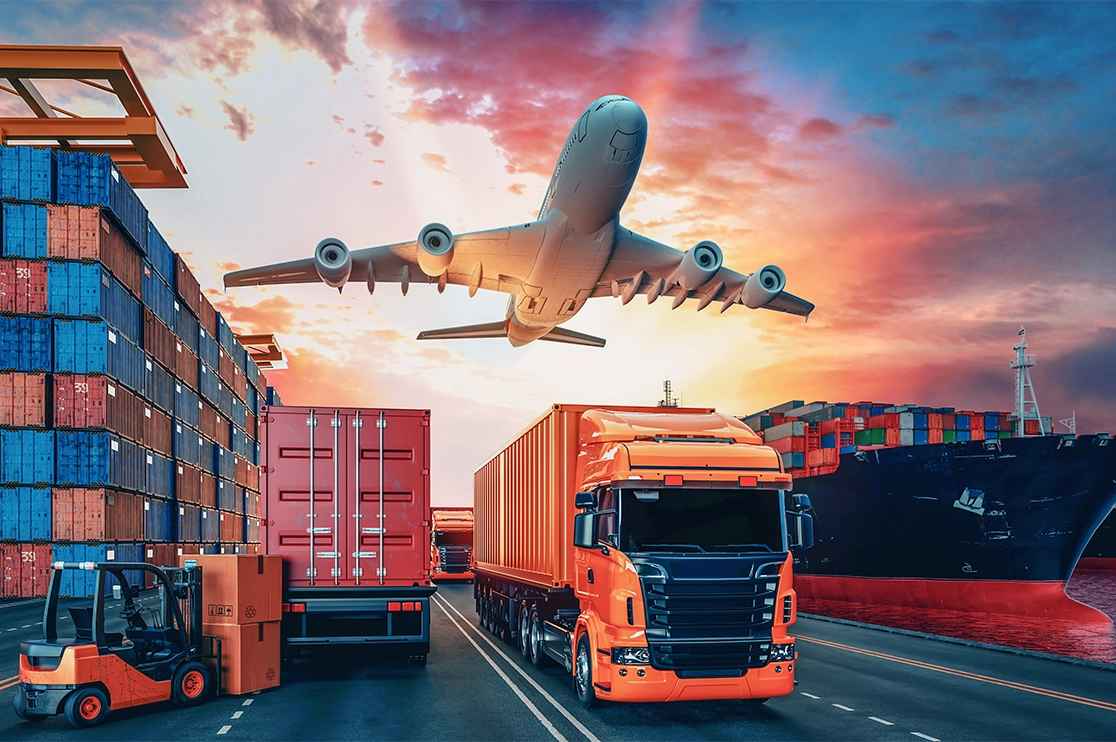Map showing abstract supply chain, by Tumisu
Businesses are starting to rethink their supply chain strategy. The Covid-19 pandemic shed an unforgiving light on the weaknesses of existing supply chains around the globe. Even putting that aside, companies have to find a way to navigate a changing geopolitical landscape
Companies are eyeing more local or diversified supply chain solutions as a buffer against, say, unexpected pandemics or invasions. If yours is one of them, here are a few things to consider before you make your decision.
Table of Contents
Introduction
Businesses need to consider, and at times rethink, the logistics of selling products internationally. Success depends largely on supply chain management, which helps determine customer experience.
A poor or faulty supply chain strategy will lead to issues that will impact a company’s success, from factories not being able to get raw materials on schedule to customers receiving packages late.
One way to help prevent this is to localize your supply chain. (This works especially well for raw-material supplies.) Indeed, reshoring – that is, bringing operations and manufacturing back to your country from abroad – has become a tactic to keep businesses thriving. Nearshoring has also become a more popular strategy.
However, one should not blindly dive into localizing one’s supply chain. It is important to strike a balance between limiting costs, maintaining brand image, and appealing to local markets.
What’s more, localization in general isn’t only about products – it can extend to marketing tactics, store layouts and even employee uniforms.
Let’s take a look at some of the benefits of localization, as well as some drawbacks, when it comes to the supply chain.
Supply Chain Strategy: Benefits of Localization
1. Consumers Want More Local Goods
The demand for local products has been increasing in recent years, and was accelerated by the pandemic.
Hence, if a large enough section of your consumers express interest in buying local products (whether or not at a premium), you can consider reshoring or localizing your supply chain.
A localized supply chain can also benefit your business if your consumers value faster delivery times.
2. Geopolitical Risks
Trade wars. Vaccine nationalism. Brexit. These are just a few examples of the geopolitical risks of our times. Furthermore, supplier viability can be an issue when offshoring. A localized supply chain strategy helps to offset these risks.
Recommended Reading:
3. Increasing Supply Chain Costs
If your supply chain costs have risen to the point that you are at a competitive disadvantage, it may be time to consider localized sourcing.
Determine your total acquisition cost, including transportations, tariffs, customs, exchange rate insurance, packaging, etc. and decide whether it is worth your current supply chain strategy.
Note that shipping requests have increased as people continue to shop online. Transportation and shipping costs, especially for overseas shipments, have increased as well. Hence, shortening your supply chain can help you save on freight costs.
While it can at times be more expensive to manufacture locally, many consumers are willing to pay extra to support local businesses. For example, a poll by Bloomberg showed that 78% of Americans were willing to pay more for products whose manufacturing was moved out of China.
Lastly, since local supply chains are usually smaller than international ones, suppliers might need less of an initial investment and permit smaller orders. This results in lowered stored inventory cost.
4. Launch Products Faster
A local supply chain means that you work with businesses in the same time zone, which makes for fast and easier communication. Subsequently, it is simpler to resolve problems and launch new products.
5. Easier to Meet With Suppliers
Thanks to audio and video apps, supply chain management can be conducted without face-to-face meetings. However, when your suppliers are within reach, it’s simpler – and generally more efficient – to just visit them.
We’re not just talking about honing connections. Site inspection, product development, and management all become easier when you can see the physical products and site.
Furthermore, if you’re considering a supplier, you’ll be able to visit to see their facilities and equipment and understand how they operate. You can visit international suppliers, but it will set you back a few thousand dollars, so you need to decide if that money is worth it.
6. Growing Environmental Concerns
There are environmental benefits to manufacturing closer to home. Transporting components and goods over long distances has a strong negative impact on the environment.
If your business can still thrive with a localized supply chain, it is recommended you do not overlook ESG (environmental, social, governance) responsibilities.
Furthermore, with regulations tightening and governments insisting that suppliers meet sustainability standards, it could save companies trouble to go local.
Drawbacks of a Localized Supply Chain
1. Latest or Best Goods Might Be Out of Reach
While local manufacturing can be reliable, with the entire world as your stage, you will have more options of companies producing excellent versions of the goods that you want.
2. Global Supply Chain May Be Cheaper
Prices offered by more distant suppliers are often lower than those provided by local suppliers due to an overall lower cost of operations. This is why components are often imported from abroad.
3. Canceling a Contract Can Incur Backlash
Hiring local suppliers can be good for PR. However, the flip side is that if you move on from those contracts, you may face backlash, no matter how justified your reasons are.
Conclusion
Global supply chains are, of course, not inherently bad for business. They are just more susceptible to supply chain disruptions. We hope this article has given you an insight into a supply chain strategy that suits your business.
To streamline your operations even further, you can go for supply chain management services. This will increase your competitiveness and improve your revenue through growth and expansion.
Ready to make your customers happy with supply chain solutions? Contact us now!
Maximum Value. Achieved.



 How Much Does App Development Cost? A Budget Estimation Guide
How Much Does App Development Cost? A Budget Estimation Guide  Using Angular to Develop Mobile Apps Can Be a Game Changer for Your Business
Using Angular to Develop Mobile Apps Can Be a Game Changer for Your Business  Pros and Cons of the WooCommerce Plugin for Online Merchants
Pros and Cons of the WooCommerce Plugin for Online Merchants  Mean Stack vs LAMP Stack: Which One is Better for Your Business?
Mean Stack vs LAMP Stack: Which One is Better for Your Business? 
